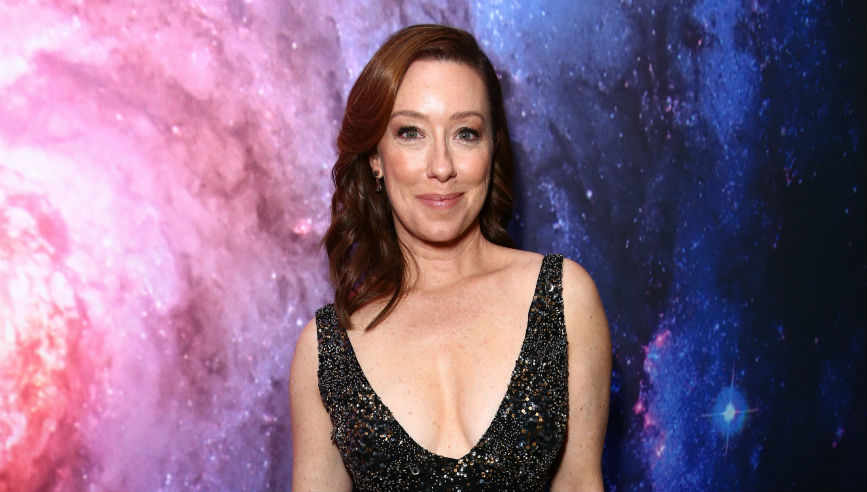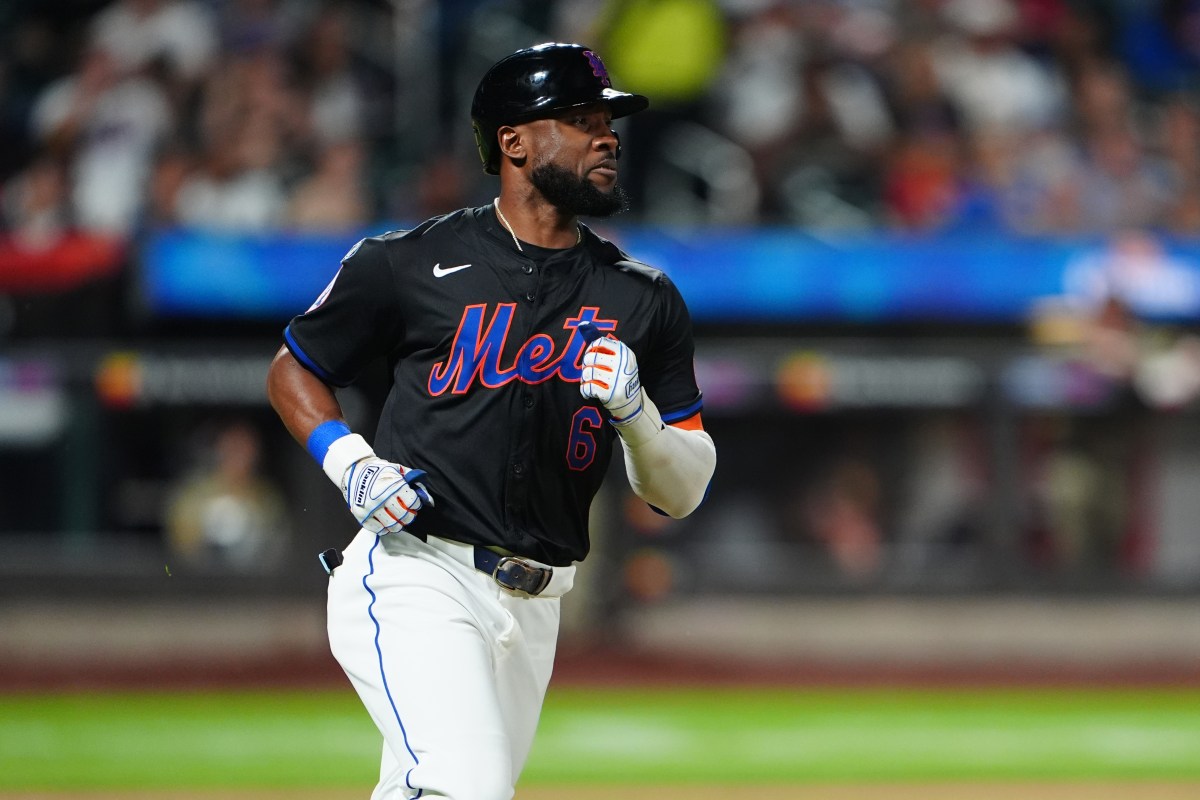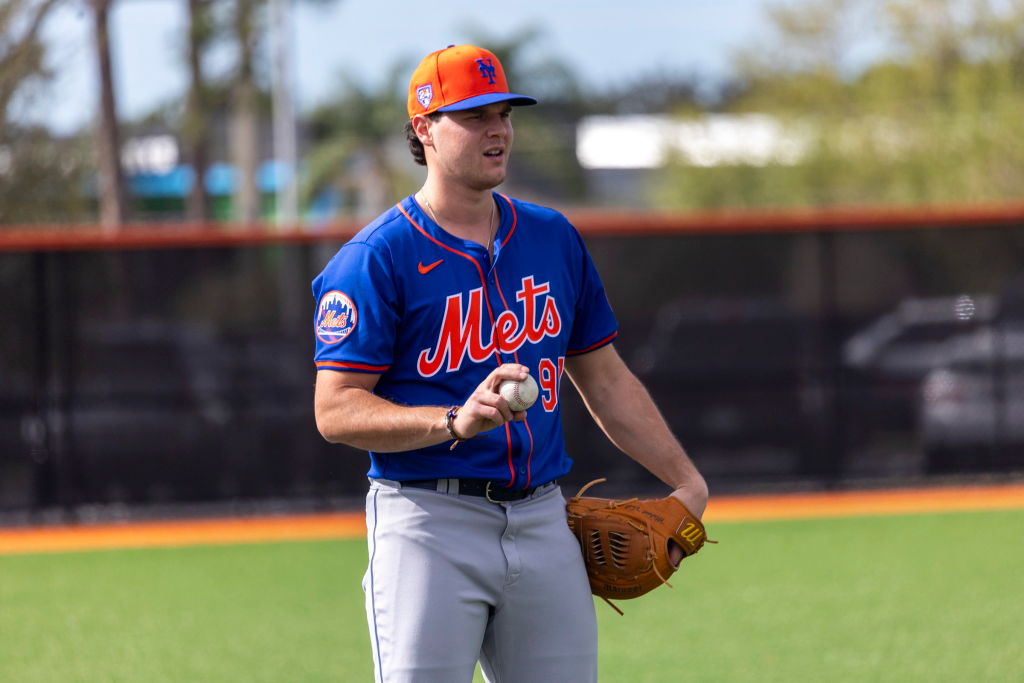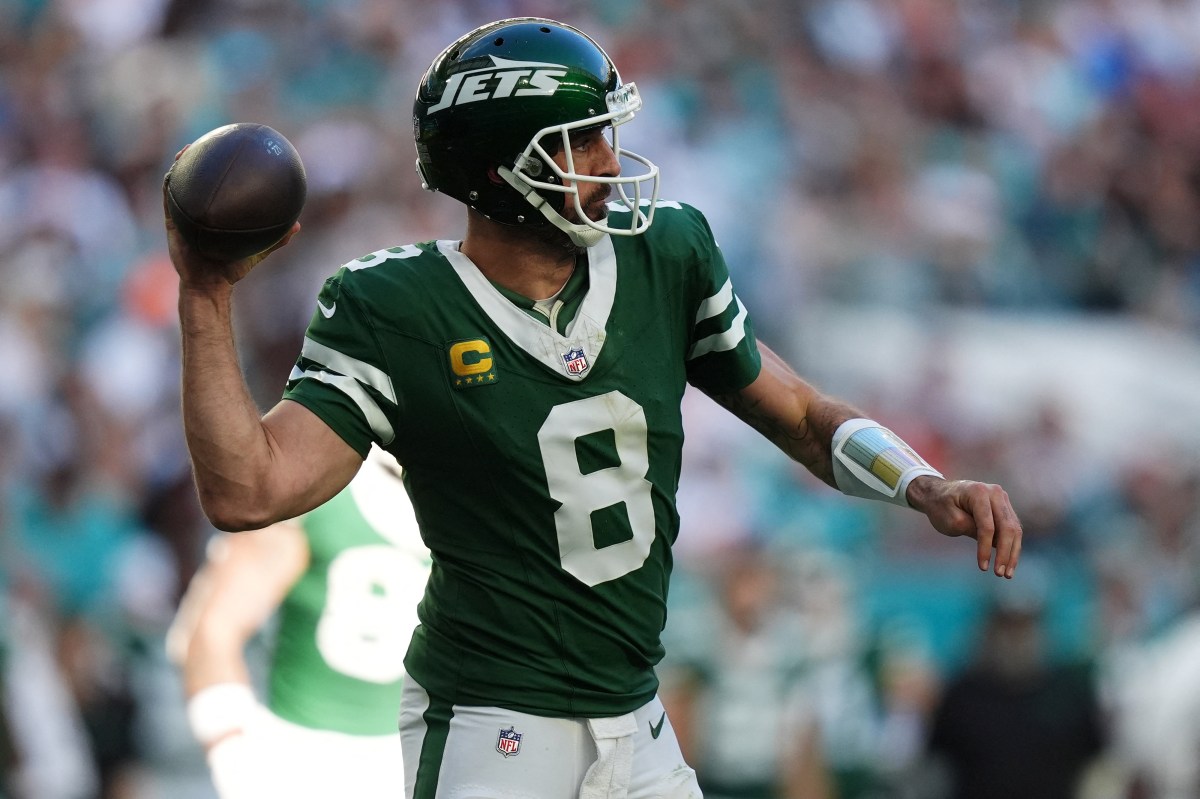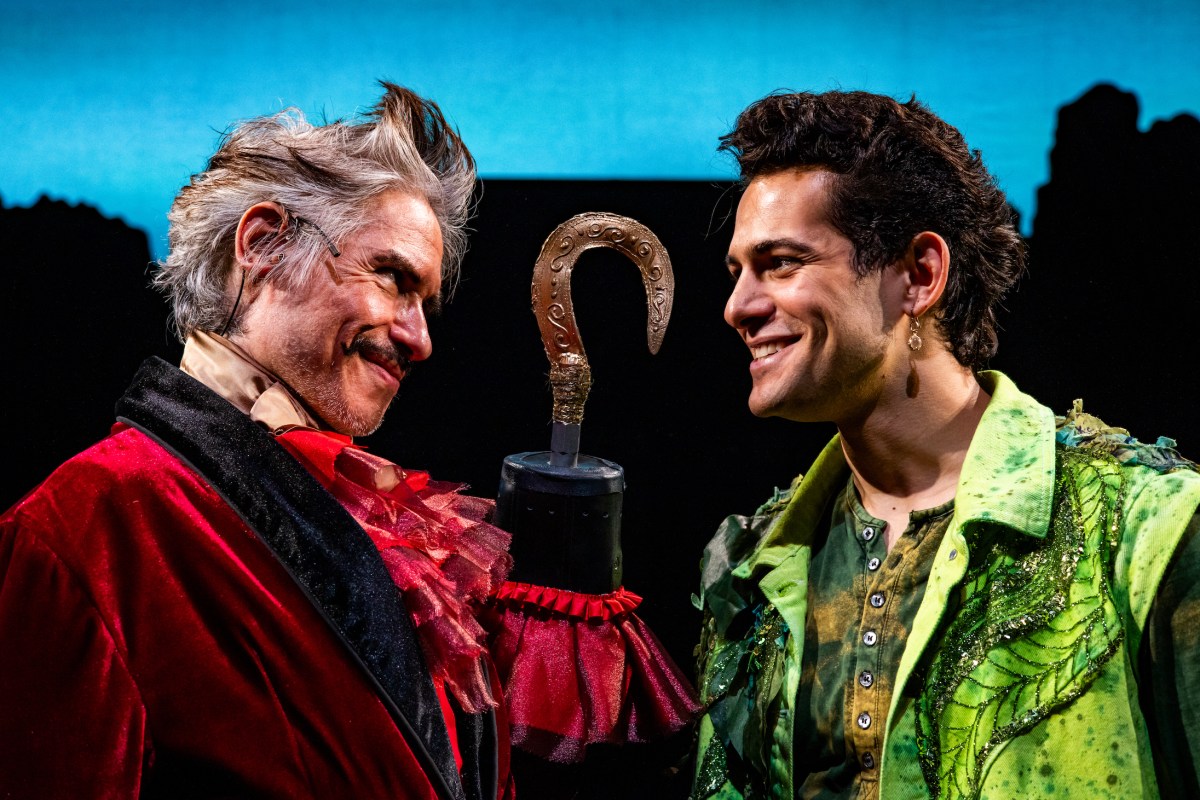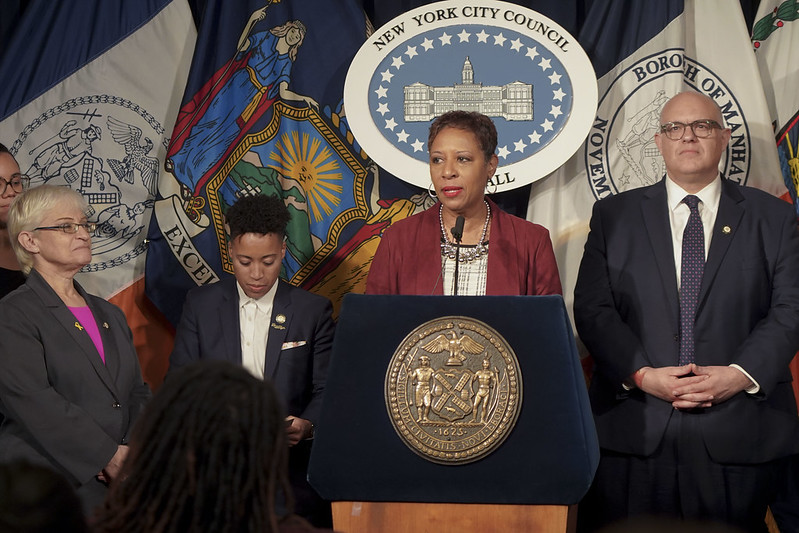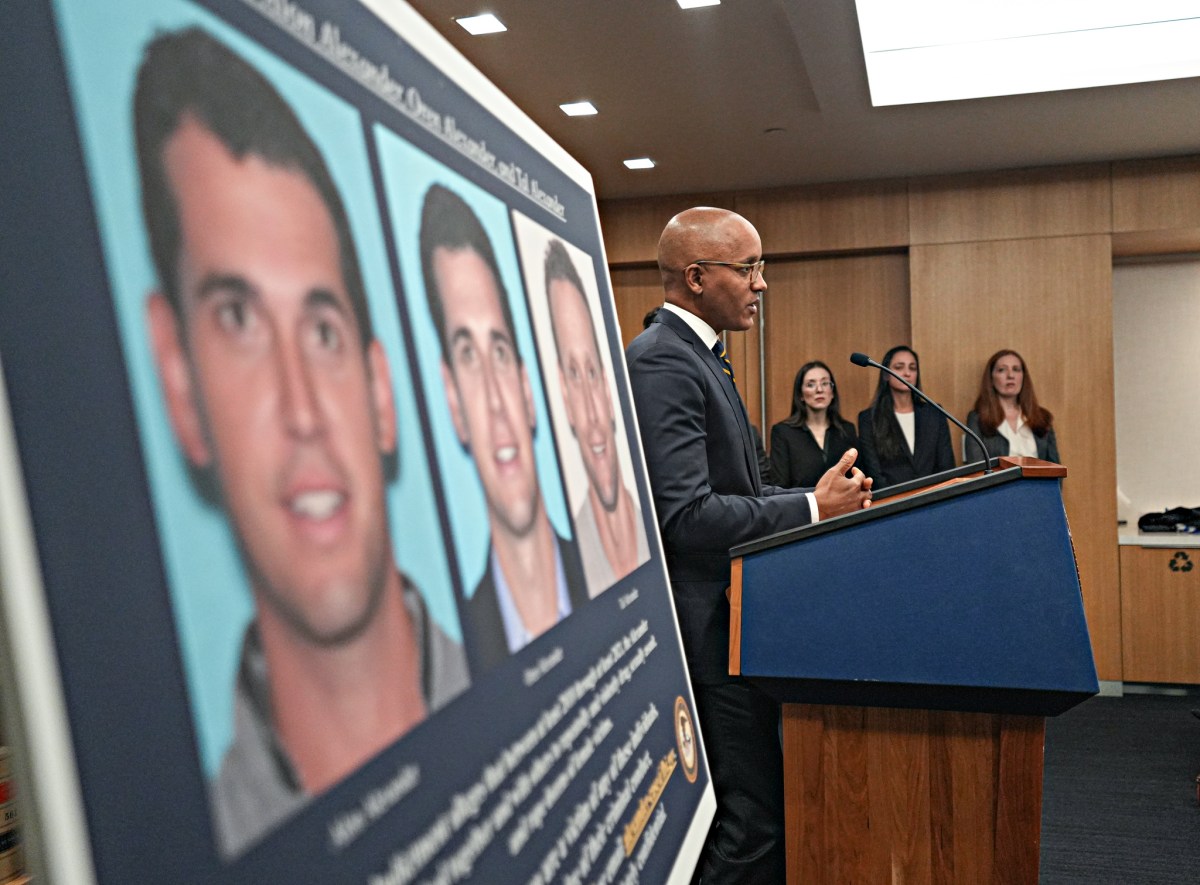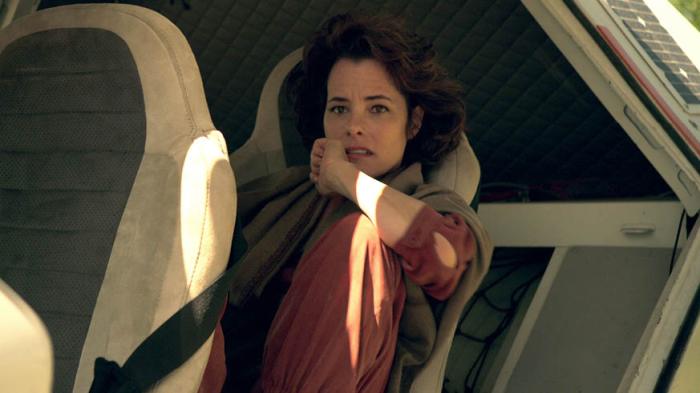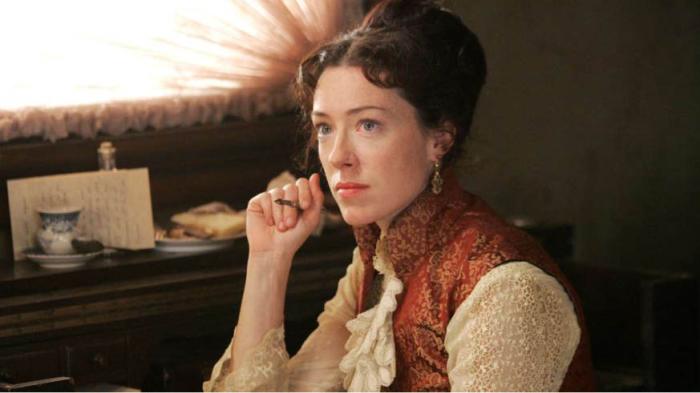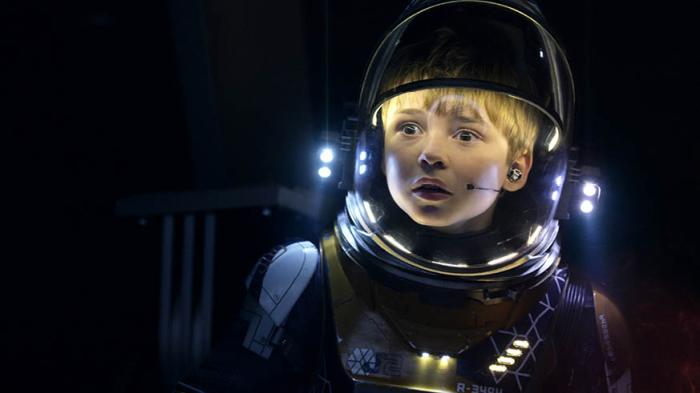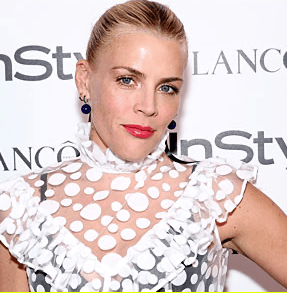Lost in Space is back — and a whole lot darker than its original variation. The Netflix reboot, out Friday, April 13, is sleeker, more modern and boasts a diverse cast: One of the Robinson children is mixed-race; Don West is played by an Argentine-American; and as for Dr. Smith? That’s no other than indie darling Parker Posey.
Another major update? Maureen Robinson is very much a hero in her own right. As played by actress Molly Parker — who you may remember from Deadwood and House of Cards — she’s the matriarch that can do it all. And does.
We chatted with the prolific actress about having never watched the original Lost in Space, gender equality and the appeal of imperfect characters.
You’ve said before that you haven’t done a lot of projects like this. What ended up being the biggest draw to this role?
I’ve done virtually no sci-fi at all. And I hadn’t seen the original, although I had a sense of it in pop culture. I knew there was a robot and guys in suits. When Netflix first approached me about it, it didn’t sound like really something that I wanted to do, but it’s really good. It gets right into the action right away, there’s all kinds of danger. And I believed [in] these people. And in further discussions with the writers and the creators of the show, I came to understand that they really planned for Maureen to sort of be the hero and were quite conscious about inverting those roles.
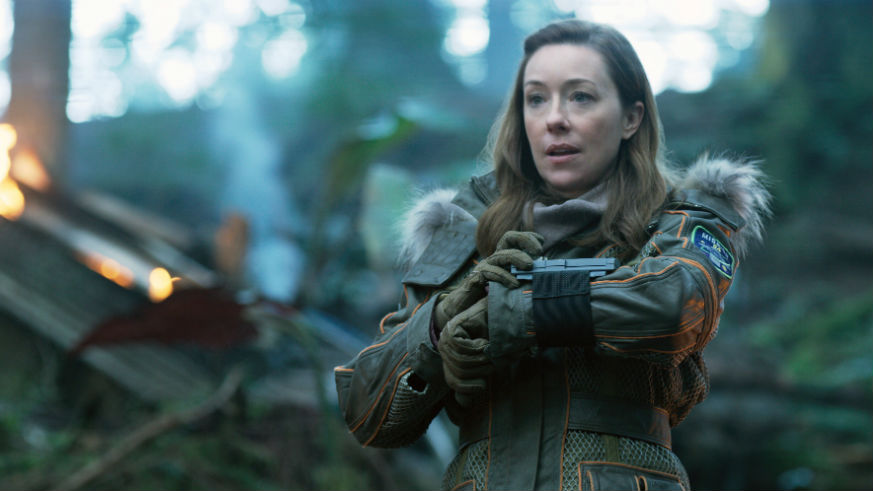
Molly Parker as Maureen Robinson in Lost in Space. Netflix
She is very much the leader of this brood, which is a major update from the original. And women are very much front and center in the reboot, too — it feels like part of Hollywood’s recent push to have women more front and center.
I think that a correction needs to be made, obviously and should have been made a long time ago. In some ways I find it just appalling that we need to keep having this conversation about being conscious of how we represent women in our culture and the culture we create. I think, I hope, I pray that in 30 years we don’t still need to be having this conversation. It’s past time.
But one of the things I really love about the show is that nobody ever talks about it, you know? It’s not a thing. There’s no struggle around it, around equality. And this family, to me— except for the fact that they are exceptionally smart and talented — this family looks and feels like all kinds of families that I know, and that kids know. I think a lot of kids can relate to having a blended family or parents that are separated or divorced. That’s normal for a lot of people these days.
It seems like you’re definitely attracted to these complex characters — what is it that attracts you to that sort of role?
I try to bring some complexity to all the roles I play because we are complex! I’m not very interested in playing people who aren’t, frankly. One of the first discussions I had with the writers was, what’s her problem? What are her secrets? I think those are the things that allow us to identify with the characters that we watch. None of us are perfect and it might be fun to watch perfect characters but it doesn’t really do much more for you than fun. I want people to care about this family and I felt like that was really important. Otherwise it’s just a lot of great special effects.

